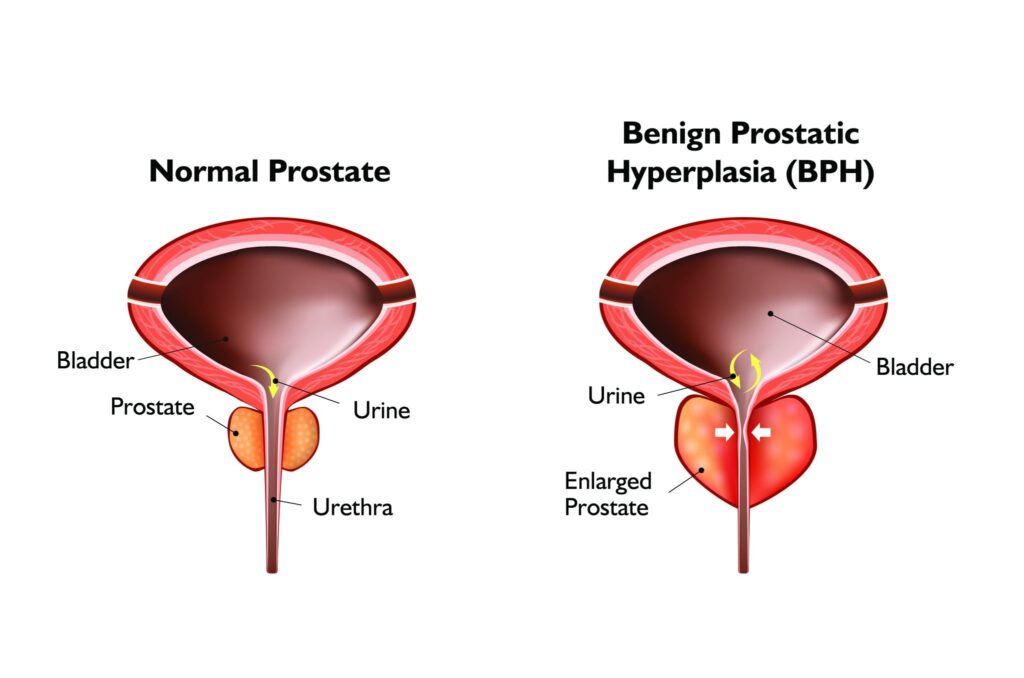Menu
The services you need, close to home.
Benign Prostatic Hyperplasia, or BPH, is a condition in which the prostate enlarges as men get older. BPH is a very common condition that affects over 42 million men in the US and over 660 million aging men worldwide. Over 40% of men in their 50s and over 70% of men in their 60s have BPH. While BPH is a benign condition and unrelated to prostate cancer, it can greatly affect a man’s quality of life.
As the prostate enlarges, it presses on and blocks the urethra, causing bothersome urinary symptoms. If left untreated, BPH can lead to permanent bladder damage.
Symptoms include:
Symptoms of BPH can cause loss of productivity, depression, and decreased quality of life.
If you suffer from the above symptoms, you are not alone. BPH is the leading reason men visit a urologist.
You can measure your BPH symptoms by taking the International Prostate Symptom Score (IPSS) questionnaire. Sharing this information with your physician will help them understand the severity of your symptoms.


The UroLift System is a minimally invasive procedure that alleviates urinary symptoms due to BPH and delivers results that matter.
The UroLift System uses a revolutionary approach to treating BPH that lifts and holds the enlarged prostate tissue so it no longer blocks the urethra. The UroLift System does not require heating, cutting, or removing of the prostate tissue.

No, BPH is Benign Prostatic Hyperplasia, a benign condition and unrelated to prostate cancer; however, it can greatly affect a man’s quality of life. BPH is NOT a type of cancer.
If left untreated, BPH can lead to permanent bladder damage.1 When the bladder does not empty completely, the risk of developing urinary tract infections (UTIs) may increase.2 Other serious problems can also develop over time, including bladder stones, blood in the urine, incontinence, or urinary retention.
You may want to seek BPH treatment if you experience BPH symptoms such as urgent need to urinate, difficulty starting your urine stream, need to push or strain when urinating, dribbling, the sensation that the bladder is not empty after urinating, weak urine flow, increased frequency of urination, frequent nighttime urination, burning or pain during urination.
The UroLift® Delivery Device is a single-use, sterile medical device that contains one UroLift Implant. Patients typically require 4-6 implants during a UroLift System treatment. The Delivery Device is inserted transurethrally through a rigid sheath under cystoscopic visualization in order to reach the targeted area of obstruction. See Procedures and Device for more information.
The UroLift Implants are small permanent implants that hold the obstructing prostatic lobes apart. They are deployed through a needle that comes out of the delivery device. Each implant is made with common implantable materials: nitinol, stainless steel, and suture. Typically, 4-6 implants are placed into the prostate.
© 2026 Aspire Rural Health System